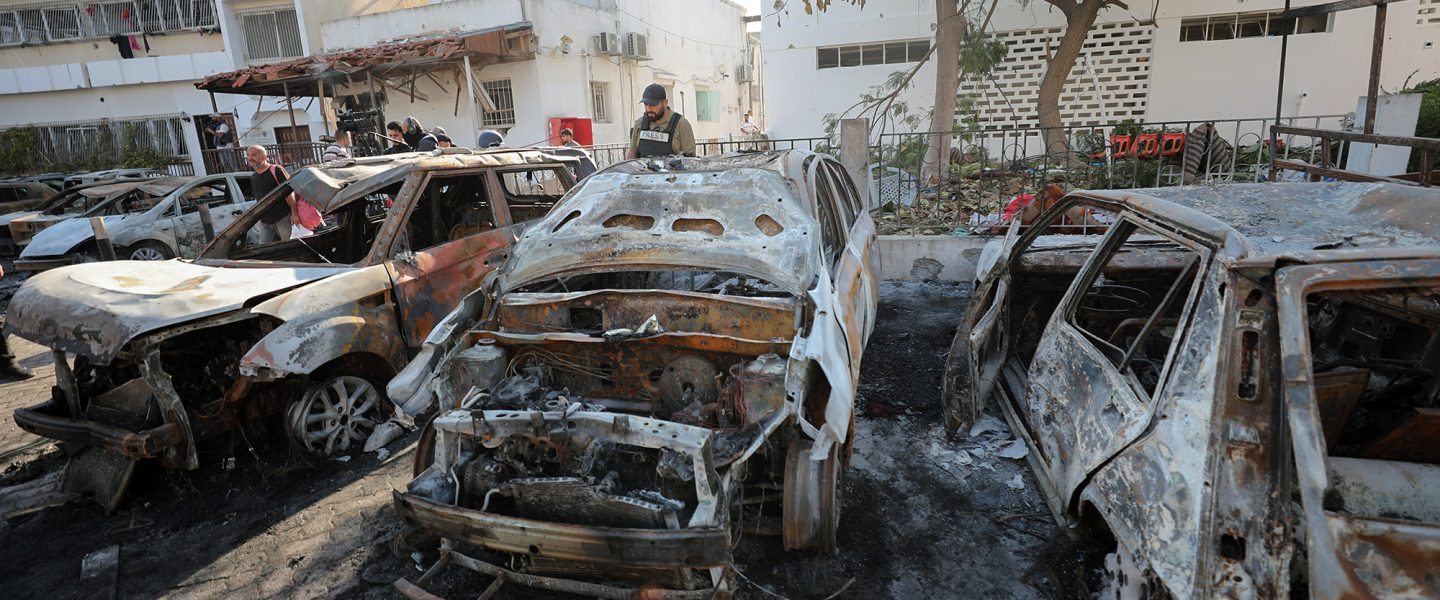The current conflict in Israel and Gaza is not only being fought on the ground; it is also being waged online, where both sides are trying to win over public opinion for their cause. It is therefore all the more important that media outlets be judicious in their coverage.
|
Listen To This Story
|
Following an explosion at a hospital in Gaza last week, there was a rush to judgment on who was to blame, and many media outlets did an extremely poor job of covering the event.
Initially, the only information that was available following the blast came from the Hamas-run Health Ministry, which unequivocally stated that an Israeli airstrike was to blame and that 500 people had died.
Anybody should have known to handle this information with care and to treat it as a piece of a puzzle instead of the whole picture.
After all, the current conflict in Israel and Gaza is not only being fought on the ground; it is also being waged online, where both sides are trying to win over public opinion for their cause.
However, many news outlets carelessly parroted this narrative but failed to attribute its source or to consider how reliable it might be or how accurate such a statement could even be at the point when it was made.
Some of them, whether in their headlines or in their stories themselves, just accepted as fact that Israel was responsible and that 500 people had died.
And this amplified a claim that was, at the very least, highly suspect.
Conversely, when Israel issued its denial and offered alternative explanations, others simply repeated those as fact without bothering to wait to find out what exactly had happened.
At the time, WhoWhatWhy pointed out that neither journalists nor public figures should be quick to judge, especially in light of the massive implications that this story would have for public opinion.
Here is what we wrote:
Now, a discerning person may wonder how the Health Ministry managed so quickly to determine that 500 people had died. The explosion happened at night, and, amid the chaos that it must surely have created and the effort it must have taken to tend to survivors, one can wonder who was counting the bodies.
At the same time, it is also fair to ask the question of how Israel can be so sure what exactly happened.
There is, after all, such a thing as the fog of war.
Ultimately, it seems fair to conclude that it might not be possible for either side to make its definitive claims — especially not as quickly as they did.
Others, both news outlets and lawmakers, were much less judicious and made declarative statements regarding narratives that ultimately are turning out to be incorrect.
In most cases, they later either doubled down on the misinformation they spread, as Rep. Rashida Tlaib (D-MI) did, or, in the case of news organizations, just glossed over the fact that they had, at the very least, exercised extremely poor judgment.
To their credit, The New York Times on Monday published a statement that it should have done better. It’s not really an apology, but if you read between the lines, it’s very clear that the paper’s editors know they screwed up, especially in writing a headline that simply repeated Hamas’s claims.
“The Times’s initial accounts attributed the claim of Israeli responsibility to Palestinian officials, and noted that the Israeli military said it was investigating the blast,” the “Editor’s Note” stated. “However, the early versions of the coverage — and the prominence it received in a headline, news alert and social media channels — relied too heavily on claims by Hamas, and did not make clear that those claims could not immediately be verified. The report left readers with an incorrect impression about what was known and how credible the account was.”
Kudos to the Times for at least acknowledging this screwup, but it would be nice if the “paper of record” exercised better care from the start.




